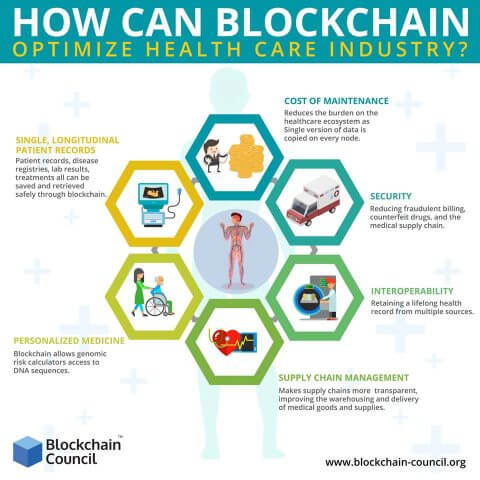
The Future Cryptocurrency how help in our Health Sectors
Using Blockchain to create incentives for health products is an interesting idea that focuses on the patient.
Currently, healthcare professionals and patients have varying levels of insight and motivation,
but they don’t typically share their data with others.
However, with the advent of blockchain technology, this can be changed.
Incentives for a particular health product could be linked to a patient’s status, such as a rare disease.
As the technology improves, more organizations are considering the blockchain as a solution.
It makes information easier to transfer between different organizations, including the patients, upstream partners, and suppliers.
As such, companies should consider their target ecosystem when considering a blockchain implementation.
They should also consider a strategy to motivate partners to adopt the technology.
This is especially important for healthcare companies that want to reach a larger audience.
Blockchains are distributed ledgers,
which means that all participants in the recording and sharing process can view all transactions. This would create an entirely new consumer experience.
In the future, the consumer could pay for their prescription with their card or phone, and the relevant cost, utilization, and claims data could all be calculated at the point of sale.
The use of blockchain technology for the creation of incentives would make it possible to increase patient satisfaction and improve outcomes.
Using blockchain to create incentives for professional health products is another innovative idea for healthcare. Blockchain technology allows healthcare providers to benefit from a crypto-currency.
For example, the OncoPower platform is a health-saving account-like wallet that rewards patients and providers for content and treatment.
It is possible to use Onco to purchase services, or even to pay the provider in exchange for the services that the community has voted for.
it has many potential uses in the health care industry
For example, the blockchain can be used to track and manage medical records.
Various use cases have been proposed in the blockchain, including tracing pharmaceutical supplies and managing patient health insurance claims.
Among the benefits of using blockchain for this purpose are transparency and security.
This is one of the major drawbacks of a healthcare product, so it is important to ensure that the manufacturer offers quality and safety.
Using block-chain to create incentives for professional health products is an innovative approach to reward users.
A blockchain-backed cryptocurrency can be used to reward healthcare practitioners or patients.
For instance, the company’s users can lease their data to researchers or health companies.
Eventually, it may be possible to integrate an at-home testing kit, nutritional supplements, and practitioner chat functionality into their platform.
Additionally, the blockchain-based health data management system will be integrated with doctors and hospitals.
The implementation of blockchain in health care is a relatively slow process compared to other industries.
While the food and diamond supply chains have adopted blockchain faster than healthcare, the pharmaceutical industry is lagging behind.
The biggest barriers to blockchain adoption include user buy-in, integration into existing networks, and training. While the solution may not generate revenue, it will improve compliance and lower costs.
In short, healthcare institutions can benefit from the use of the blockchain to create better diagnoses and treatments.
A block-chain platform can also provide incentives for safer drug production
It is possible to trace mistakes in the production of a drug back to its source.
Besides providing incentives for safer drugs, blockchain can help prevent the sale of counterfeit medications.
By allowing the patient to trace a product’s journey, it can also help prevent the spread of harmful or counterfeit drugs.
This way, it can also save lives and reduce the risks of infections.
PBMs and health insurers should evaluate the benefits of a blockchain-based solution before implementing it.
Creating a common data model with the help of the blockchain can help healthcare providers and insurers provide better care to their patients.
By using blockchain technology, a PBM can save time and money on data management and improve the quality of care for patients.
If a patient is a good candidate for a particular PBM, the system can also reduce the costs associated with fraudulent or false claims.


